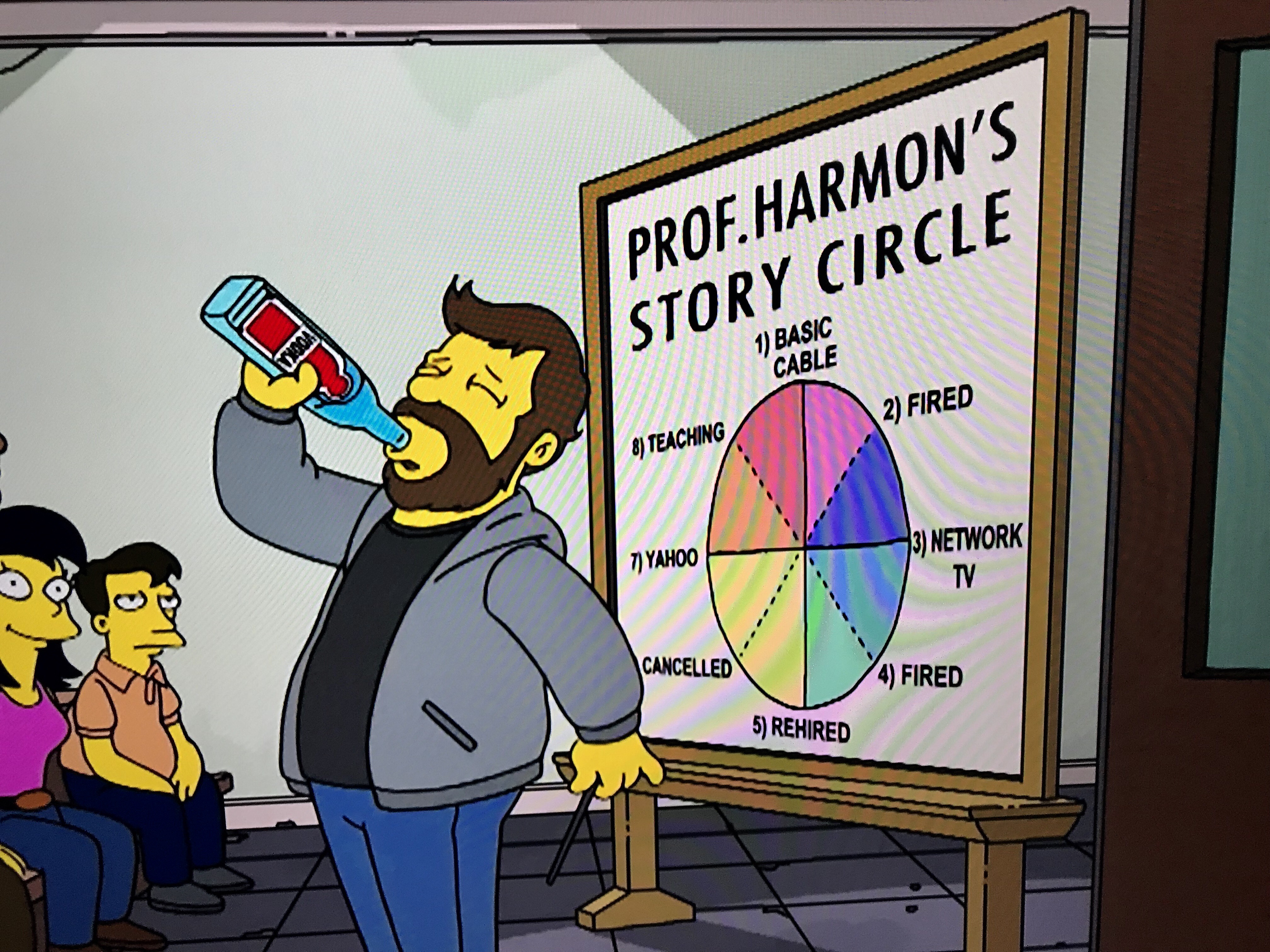When the facilitator at one of the support groups I attend mentioned a Buddhist recovery meditation program, I pushed back because I’ve always been a little wary of Buddhism. Follow my thinking.
Buddhism’s Four Nobles Truths are (loosely):
- Life is full of suffering
- Suffering is caused by desire
- Suffering can be eliminated by removing desire
- The way to remove desire is by following the Eightfold Path
But I’ve always said that “my motivation is a delicate mechanism.” I’m not so sure I want to eliminate desire. When I feel motivated to live, when I feel life has meaning, it’s because I feel desire, so I’m reluctant to tamper with it.
In some formulations of the Four Noble Truths, you hear the term “desirous attachment” instead of “desire.” This got me thinking that perhaps — as so often happens — this was a translation issue.
Buddhism loves lists — especially if they’re numbered — so they have something called the Twelve Nidānas which articulate the causal relationships, the links, from “ignorance” to “all suffering.” The concepts of taṇhā and upādāna are the eighth and ninth links in this chain, respectively.
I wanted to compare those two words in four languages:
- Sanskrit – a descendant of the Proto-Indo-European language and the liturgical language of Hinduism (from which Buddhism was an outgrowth or, if you’re C.S. Lewis, a Hindu “heresy”)
- Pāli – the language used to write the canon of the Theravada branch of Buddhism
- English – another descendant of Proto-Indo-European
- Chinese – the language the Buddhist texts were translated into as they moved across the continent through China and into Japan
I made a table comparing the words:
| Sanskrit |
Pāli |
English |
Chinese |
| tṛṣṇā |
taṇhā |
craving, thirst, longing, greed |
贪爱 (tānài) |
| upādāna |
upadana |
attachment, clinging, grasping |
取 (qǔ) |
And so, here we’re able to differentiate the vague term “desire” into two discrete, consecutive ideas: a thirsting or longing for something followed by a clinging or attachment to that thing once it is possessed.
The Chinese translation of tṛṣṇā, 贪爱 (tānài), has the sense of “greedy love.” It is also interesting to note that the Vedic Sanskrit’s root tarśa has English cognates like “thirst” and “drought.”
As for upādāna, its literal definition is “fuel.” The Buddhist word nirvāṇa is the cessation of suffering & rebirth, but it literally means “extinguish” or “blow out” or “quench.” In this extended fire metaphor, upādāna is the fuel. More conceptually, however, it means “clinging” or “attachment.”
In the Abhidharma (meaning “higher teaching” or “meta-teaching”) which comprises detailed scholastic reworkings of the doctrines from the Buddhist sutras, four interdependent forms of clinging are defined:
- self-doctrine clinging – first, one assumes that one has a permanent “self”
- wrong-view clinging – then, one assumes that one is either somehow eternal or to be annihilated after this life
- rites-and-rituals clinging – if one assumes that one is eternal, then one clings to rituals to achieve self-purification
- sense-pleasure clinging – if one assumes that one will completely disappear after this life, then one disregards the next world and clings to sense desires
(Wrong-view clinging leading to sense-pleasure clinging sounds a lot like nihilism leading to hedonism. There really is nothing new under the sun.)
Christianity, Taoism, Stoicism, and Buddhism all agree(!) on the goal of detachment from worldly things. In Sanskrit & Pāli, the word for “no attachment” is alobha. In Taoism, alobha is translated to 无念 (wú niàn) which means “no thought” or “empty thought.” This idea resonates throughout Far Eastern culture. In Zen Buddhism, it is central to the martial arts, to things like samurai Miyomoto Musashi‘s 五輪書 (Go Rin no Sho meaning The Book of Five Rings), and has a related concept called不染 (bù rán) meaning “unstained.” More generally in Buddhism, attachment is so important that it is considered one of the Three Poisons:
- moha – delusion, confusion, ignorance (often personified as a pig)
- rāga – attachment, greed (often personified as a bird)
- dveṣa – aversion, hatred (often personified as a snake)
These three terms, plus tons more, are all explored in the Abhidharma (meaning “higher teaching” or “meta-teaching”) which comprises detailed scholastic reworkings of the doctrines from the Buddhist sutras.
And, yes, yes, with rāga we’re back to conflating “greed” and “attachment” again, so I want to go back to the more specific idea of taṇhā.
Buddhism does have a concept in contradistinction to taṇhā (which is always bad) called chanda meaning “intention” or “interest” or “aspiration” or “desire to act” (which can be good.) In Tibetan Buddhism’s five faults and eight antidotes, chanda is the antidote to laziness. In Mahayana Buddhism, it is one of the five object-determining mental factors. In Theravada Buddhism, it is one of the six occasional mental factors.
Although the meaning of chanda is ambiguous in early Buddhist texts, and some scholars assert that chanda can be either wholesome or unwholesome, others differentiate taṇhā (“desiring what, and no more than, will be attained”) from chanda (“desiring more than will be attained”) and one Theravada Buddhist monk summarizes meditation on the dharma (truth) as the transformation of taṇhā into chanda.
TL;DR If you have something, attachment is bad. If you want something, greed is bad. But wanting something in and of itself may be bad or it may be good. So, meditate to turn your wanting into something good.

 Dan Harmon had an amusing cameo on The Simpsons teaching at a community college.
Dan Harmon had an amusing cameo on The Simpsons teaching at a community college.